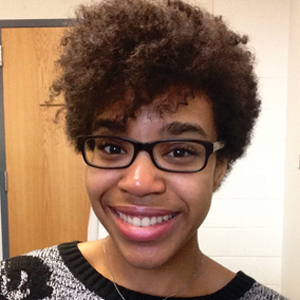Postdoc wins Tabor award
for lipid membrane research
Lipid membranes surround and protect each of our cells. They serve as a first line of defense, allow for intracellular signaling and keep subcellular compartments separate. The lipid composition must therefore be diverse and distinctive enough to keep a cell running smoothly. Figuring out which lipids are needed where and when can be challenging, however. Itay Budin, a postdoctoral fellow at the University of California, Berkeley, studies lipid properties and why certain ones belong in specific cell membranes. For his research, Budin received a 2017 Journal of Biological Chemistry/Herbert Tabor Young Investigator Award.
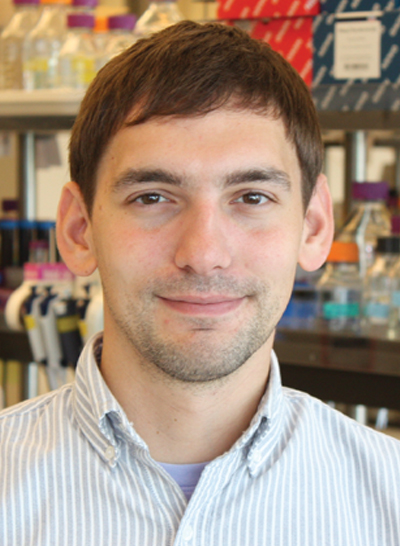 Itay Budin is a Miller Institute junior fellow at the University of California, Berkeley, and works at the Joint BioEnergy Institute. courtesy of Itay Budin
Itay Budin is a Miller Institute junior fellow at the University of California, Berkeley, and works at the Joint BioEnergy Institute. courtesy of Itay Budin
Budin investigates how lipid composition affects membrane properties and the consequences of altering particular lipids in model organisms. Lipids make up cellular and subcellular membranes and help maintain integrity and compartmentalization. However, manipulation of these lipids to understand their roles has been done primarily in vitro, and tools to recapitulate findings within living organisms are difficult to develop. Budin uses metabolic engineering to explore lipid composition and functionality. He explained that he does this by altering the genes that give rise to particular lipids. He is then able to “rewire” these pathways within the organism to understand which lipids are necessary for a particular membrane and why. Budin and colleagues have learned that a cell’s membrane can act as an environmental sensor, and a particular set of proteins then responds to maintain homeostasis. This work was published in May 2017 in the journal Metabolic Engineering.
JBC Associate Editor Dennis Voelker presented the award to Budin in August at the 2017 Gordon Research Conference on Molecular and Cell Biology of Lipids. Receiving the award was a “great honor and real thrill,” Budin said, and receiving it from Voelker, a lipid biologist, reinforced the importance of his work. The award committee thought Budin’s work was instrumental in “assigning a crucial mechanistic role for unsaturated lipids in serving as molecular signals that liberate transcription factors from the endoplasmic reticulum in response to a variety of stimuli,” they wrote with input from Voelker.
Budin earned his Ph.D. in biochemistry and physical biology from Harvard University in the laboratory of Jack W. Szostak investigating the changes in lipid composition throughout evolution. He then came to the University of California, Berkeley, on a Miller Institute Junior Fellowship. He works with Jay Keasling at the Joint BioEnergy Institute, a research center in Berkeley focused on synthetic biology and metabolic engineering.
Enjoy reading ASBMB Today?
Become a member to receive the print edition four times a year and the digital edition monthly.
Learn moreGet the latest from ASBMB Today
Enter your email address, and we’ll send you a weekly email with recent articles, interviews and more.
Latest in People
People highlights or most popular articles
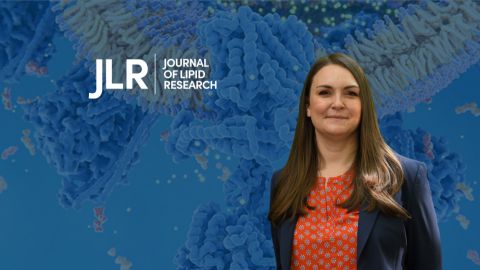
Meet Shannon Reilly
The JLR junior associate editor discusses the role of adipocytes in obesity at Weill Cornell Medical School.
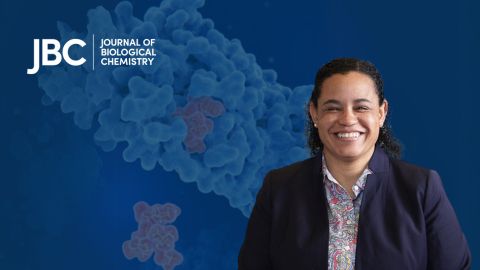
Meet Donita Brady
Donita Brady is an associate professor of cancer biology and an associate editor of the Journal of Biological Chemistry, who studies metalloallostery in cancer.
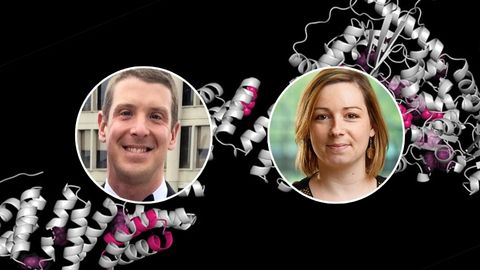
Glyco get-together exploring health and disease
Meet the co-chairs of the 2025 ASBMB meeting on O-GlcNAcylation to be held July 10–13, 2025, in Durham, North Carolina. Learn about the latest in the field and meet families affected by diseases associated with this pathway.
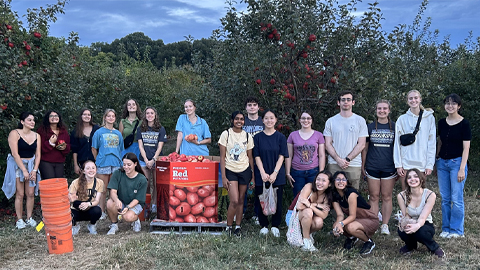
ASBMB recognizes 2025 outstanding student chapter
The Purdue group, led by Orla Hart, developed STEM outreach initiatives for low-income and minority students in Lafayette, Indiana.
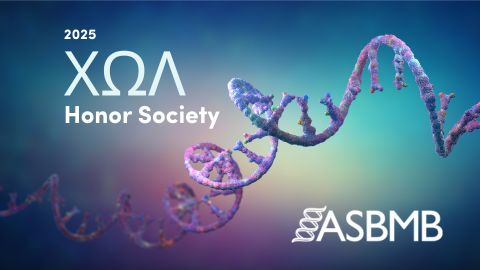
ASBMB inducts 2025 honor society members
Chi Omega Lambda, which recognizes exceptional juniors and seniors pursuing degrees in the molecular life sciences, has 16 new inductees in 2025.
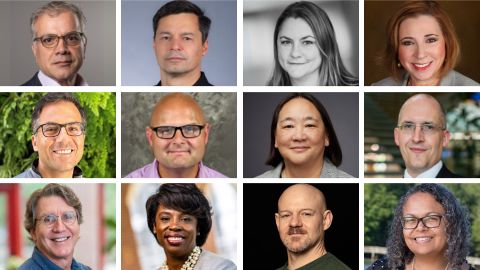
2025 voter guide
Learn about the candidates running for ASBMB President, Secretary, Councilor, Nominating Committee and Publications Committee.

